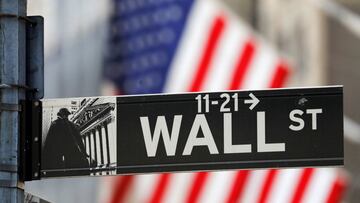How has the covid-19 delta Variant affected Stock Markets?
The highly transmissible variant has began to make an effect upon global Stock Markets as nations gear up for a new wave.


Despite bouncing back Tuesday and Wednesday, a large blip in traders confidence on Monday showed the early signs of a slowdown in the pandemic recovery as well as the fragility in the current market.
These fears are driven by a resurgent covid-19, spearheaded by the Delta variant, which is taking hold of countries from east to west. This has led to fears of a return to restrictions as cases and deaths rise across many nations.
Our Delta variant coverage:
- Dr. Fauci says vaccines effective at protecting from Delta variant
- Why is Pfizer creating a covid-19 vaccine booster?
- Coronavirus US: Can vaccinated people spread the Delta Variant?
- How has the covid-19 delta variant affected travel restrictions?
What has been happening to the Stock Markets in more detail
The markets had been moving comfortably in the right direction of the back off an ever increasing vaccine rollout, as well as huge economic injections in the forms of the stimulus packages.
However, Monday saw one of the biggest drops in months as traders awoke to news of new restrictions in Asia as well as worrying pandemic developments in Europe and in the US.
The Nasdaq and S&P 500 had their biggest drop in nearly two months, falling 1.7% and 1.9% respectively. The 10-year Treasury bond yield fell to its lowest levels since early March, a less volatile measurement of viewing the markets which suggests further trouble ahead.
The drop-off was not just felt in the US. In Europe, the FTSE 100 in London slumped 2.6% while Germany's DAX lost 2.9% and France's CAC 40 fell 2.9%. Asian markets also fell with Japan's Nikkei 225 losing 1.3%.
By Wednesday the markets had returned to their pre-Monday levels but it is unlikely that this will be the last significant scare before the end of the year. As stimulus injections and covid-19-based support for ailing economies subside, the economic growth the US is seeing will slow down. In the first quarter of 2021 it grew 6.4%. and the forecast is it will grow faster in the second quarter, provided the pandemic does not disrupt it too much.
What threat does the Delta variant pose?
Increased transmission and deaths make it more likely that nations will reimpose restrictions to protect lives. As has been seen throughout the pandemic, these restrictions inevitably damage economies.
The new variant is driving case numbers up worldwide. In South-East Asia the variant is tearing through communities as the rate of vaccination is lower than in Europe. In Indonesia last week there was more than 50,000 cases a day and, further north in Japan, Tokyo was seeing case numbers of more than 2,000 mere days before the start of the Olympics.
Related stories
Even in places with high rates of vaccinations there is a worrying rise in cases. The United Kingdom has seen a rapid rise in cases just as England threw off the remaining restrictions. France is seeing more than 20,000 new cases a day. If the lessening of restrictions has come to early then a return to draconian measures could be seen, especially as countries head into winter when hospitals are busy with or without covid-19.
Get vaccinated!
— Leader McConnell (@LeaderMcConnell) July 20, 2021
These shots need to get into arms as rapidly as possible, or else we're gonna be back in a situation this fall like what we went through last year. pic.twitter.com/J4o6yL5cn4
Closer to home California removed its restrictions, only to see the reimposition of masks a month later. All these worrying signs in such an interconnected world make traders worried. If nations' vaccination programmes are lagging coming into winter then there is huge risks of more confinements and further economic downturn.

